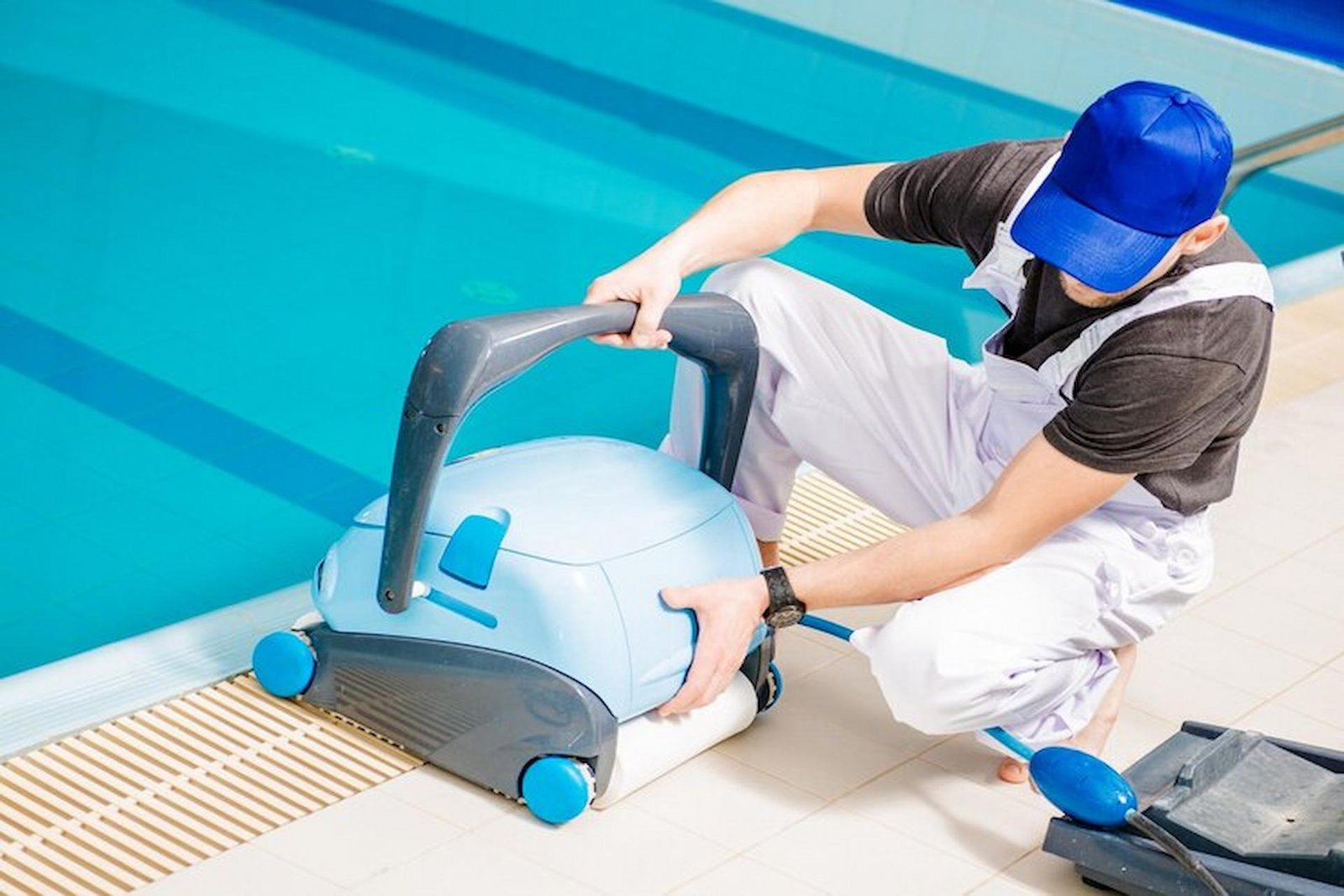Maintaining a clean and healthy swimming pool is crucial. It’s not just about keeping the water looking good. It’s also about ensuring the safety and comfort of everyone using the pool. Here are some advanced strategies to help you keep your pool in top condition. These tips go beyond the basics and will help you tackle common issues efficiently.
Regular Cleaning Routine
Skimming and Brushing
First, make skimming and brushing a daily habit. Use a net to remove leaves, insects, and debris from the surface. This prevents them from sinking to the bottom. Brush the walls and floor of the pool to remove dirt and algae. It only takes a few minutes, but it makes a big difference.
Vacuuming
Vacuum your pool weekly. This helps to clean the areas that brushing might miss. There are manual and automatic vacuums available. Choose the one that suits your needs and budget. Regular vacuuming helps keep the water clear and prevents algae growth.
Water Circulation
Running the Pump
Proper water circulation is key to a healthy pool. Run your pool pump for at least eight hours a day. This helps to filter the water and distribute chemicals evenly. Good circulation prevents the growth of bacteria and algae.
Clean the Filters
Filters are essential for trapping dirt and debris. Clean them regularly to ensure they work efficiently. A clogged filter can reduce water flow and lead to poor circulation. Rinse cartridge filters every two weeks and backwash sand or diatomaceous earth filters monthly.
Chemical Balance
Testing the Water
Test your pool water at least twice a week. This helps you monitor the chemical levels. You can use test strips or a liquid test kit. Keep a log of your results to track any changes over time.
Adjusting pH Levels
The pH level of your pool should be between 7.2 and 7.8. A balanced pH prevents skin and eye irritation and keeps your equipment from corroding. If the pH is too high, add a pH reducer. If it’s too low, add a pH increaser.
Sanitising
Sanitisers like chlorine keep your pool water free from harmful bacteria. Maintain chlorine levels between 1 and 3 parts per million (ppm). Shock your pool every two weeks or after heavy use. This involves adding a large dose of sanitiser to kill any lingering bacteria.
Preventing Algae
Using Algaecide
Algae can turn your pool green and make the surfaces slippery. Use an algaecide weekly to prevent its growth. Follow the instructions on the product for the best results. Algaecide acts as a backup to your regular sanitising routine.
Keeping Debris Out
Leaves and dirt can introduce algae spores into your pool. Use a pool cover when the pool is not in use. Trim trees and bushes around the pool area to minimise debris. Regularly clean the area around your pool to keep it free from leaves and dirt.
Maintaining Pool Equipment
Inspecting Equipment
Check your pool equipment regularly. Look for signs of wear and tear. Replace any damaged parts immediately. Regular maintenance can extend the life of your equipment and prevent costly repairs.
Winterising
Winterise your pool before the first frost if you live in a cold climate. This involves draining the water to below the skimmer level and adding antifreeze to the pipes. Cover the pool to keep out debris and protect it from the elements.
Pool Safety Measures
Fencing and Covers
Safety should always be a priority. Install a fence around your pool with a self-closing, self-latching gate. Use a pool cover when the pool is not in use to prevent accidental drownings. These measures help keep children and pets safe.
First Aid Kit
Keep a first aid kit near the pool. Make sure it’s stocked with bandages, antiseptic wipes, and other essentials. This way, you’ll be prepared to act quickly in an emergency.
Energy Efficiency
Using a Pool Cover
A pool cover reduces water evaporation and helps retain heat. This can lower your heating costs. It also keeps debris out, reducing the need for cleaning and chemical use.
Energy-Efficient Pumps
Consider upgrading to an energy-efficient pool pump. These pumps use less electricity and can save you money in the long run. They also operate more quietly, providing a more pleasant pool environment.
Hiring a Professional
Regular Inspections
Hire a professional to inspect your pool once a year. They can identify potential problems before they become serious. A professional can also provide valuable swimming pool maintenance tips and advice.
Expert Advice
Sometimes, pool issues require expert attention. Don’t hesitate to call a professional if you’re unsure how to handle a problem. Their expertise can save you time and money.
Conclusion
By following these advanced strategies, you can ensure your pool stays clean and healthy. Regular maintenance, proper chemical balance, and efficient equipment are key. Always prioritise safety and consider hiring a professional for regular inspections. Enjoy your swimming pool maintenance routine, knowing you are keeping it in the best possible condition.

